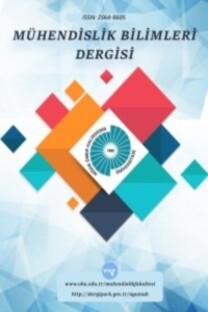DÖNER KAVŞAKLARDA FARKLI SİNYALİZASYON ZAMANLAMASINDAKİ TRAFİK YOĞUNLUĞUNUN KARŞILAŞTIRILMASI
Artan
araç sayısı kalabalık şehirlerde
oluşan en önemli problemlerden biri olan trafik sıkışıklığını tetiklemektedir. Sinyalizasyon
zamanlaması trafik akış kontrolünde ve şehir trafiğinde kaybedilen zamanın
azalmasında çok önemli bir rol üstlenmektedir. Kuyruk uzunluğunu ve trafikteki
araç gecikmelerini azaltmak için farklı sinyalizasyon zamanlamalarındaki trafik
yoğunluğunun tahmini önemli bir rol oynamaktadır. RODEL, SIDRA ve VISSIM gibi
trafik simülasyon programları araçların trafikteki davranışlarını anlamak için
kullanılmaktadır. Bu çalışmada, VISSIM programı değişik sinyalizasyon
zamanlamalarında döner kavşak etrafında oluşan kuyruk uzunluğu, araç gecikmesi
ve araç emisyon oluşumunu göstermek için kullanılmıştır. Çalışma, mevcut ve
önerilen durum arasındaki farkları doğrulamak için gerçek bir durum çalışması
üzerinde değerlendirildi. Durum çalışması için Adana
(Türkiye) şehir merkezinde yer alan, aşırı trafik yoğunluğu bulunan bir döner
kavşak seçilmiştir. Model, güney yolunun yeşil ışık periyodunun 22 saniyeden 28
saniyeye yükselmesinin, kavşak etrafında yer alan araçların kuyruk uzunluğunu,
araçların gecikmesini ve araç emisyon oluşumlarını iyileştirdiğini gösterdi.
Anahtar Kelimeler:
Optimizasyon, trafik sinyalizasyonu, VISSIM, emisyon
COMPARISON OF TRAFFIC DENSITIES AT DIFFERENT SIGNALIZATION TIMINGS IN ROUNDABOUTS
The increasing number of vehicles triggers traffic jam which is one of
the most important problems that occurs in crowded cities. Signalization timing
has a crucial role in controlling traffic flow and decreasing loss of time in
city traffic. In order to reduce queue length and vehicle delays in traffic,
the estimation of traffic concentration at different signalization timings
plays an important role. Traffic simulation tools such as RODEL, SIDRA, and VISSIM are used to understand the behavior of vehicles in traffic. In this study,
VISSIM program was used to demonstrate queue lengths, vehicle delays and
vehicular emission formations in a roundabout at different signalization
timings. The study has been evaluated on a real case study to verify the
differences between current and proposed states. A roundabout in Adana (Turkey)
was selected which is located at the city
center with over-saturated traffic density for a case study. The model indicated that increment of the green time period of the south road from 22 seconds to 28 seconds resulted in improved queue lengths, vehicle
delays and emission formations of the vehicles which were around the
roundabout.
Keywords:
Optimization, traffic signalization, VISSIM, emission,
___
- [1] CUADRA, L., “Technological Forecasting & Social Change Soft-Computing: An Innovative Technological Solution for Urban Traffic-Related Problems in Modern Cities”, Technol. Forecast. Soc. Chang., 89, 236–244, 2014.
- [2] YUSUPBEKOV, N.R., MARAKHIMOV, A.R., IGAMBERDIEV, H.Z., UMAROV, S.X., “Application of Soft-Computing Technologies to the Traffic Control System Design Problems”, Procedia - Procedia Comput. Sci., 102, 540–546, 2016.
- [3] GALLELLI, V., VAIANA, R., IUELE, T., “Comparison Between Simulated and Experimental Crossing Speed Profiles on Roundabout with Different Geometric Features”, Procedia - Soc. Behav. Sci., 111, 117–126, 2014.
- [4] NIELSEN, O.A., FREDERIKSEN, R.D., SIMONSEN, N., “Using Expert System Rules to Establish Data for Intersections and Turns in Road Networks”, 5, 569–581, 1998.
- [5] YUN, M., JI, J., “Delay Analysis of Stop Sign Intersection and Yield Sign Intersection Based on VISSIM”, Procedia - Soc. Behav. Sci., 96, 2024–2031, 2013.
- [6] SINGH, M., PONNU, B., ARKATKAR, S.S., “Modeling of Traffic Flow on Indian Expressways Using Simulation Technique”, Procedia - Social and Behavioral Sciences, 43, 475–493, 2012.
- [7] QUAASSDORFF, C., BORGE, R., PÉREZ, J., LUMBRERAS, J., DE PAZ, D., DE ANDRÉS, J.M., “Science of the Total Environment Microscale Traffic Simulation and Emission Estimation in a Heavily Trafficked Roundabout in Madrid (Spain)”, Sci. Total Environ., 567, 416–427, 2016.
- [8] LIN, D., YANG, X., GAO, C., “VISSIM-based Simulation Analysis on Road Network of CBD in”, Procedia - Soc. Behav. Sci., 96, 461–472, 2013.
- [9] MARSDEN, G., BELL, M., REYNOLDS, S., “Towards a Real-Time Microscopic Emissions Model”, Transp. Res. Part D Transp. Environ., 6, 37–60, 2001.
- [10] RAKHA, H., DING, Y., “Impact of Stops on Vehicle Fuel Consumption and Emissions”, Journal of Transportation Engineering, 129, 23-32, 2013.
- [11] http://citeseerx.ist.psu.edu/viewdoc/download?doi=10.1.1.481.7349&rep=rep1&type=pdf (accession date 24.02.2016)
- [12] NIKOLIC, G., ENG, P., PRINGLE, R., RANKIN, M., BRAGG, C.K., “Evaluation of Analytical Tools used for the Operational Analysis of Roundabouts”, Proceedings of Annual Conference of the Transportation Association of Canada. Halifax Nova Scotia, Canada, 2010.
- [13] FERNANDES, P., COELHO, M.C., ROUPHAIL, N.M., “Assessing the Impact of Closely-Spaced Intersections on Traffic Operations and Pollutant Emissions on a Corridor Level”, Transp. Res. Part D Transp. Environ., 54, 304–320, 2017.
- [14] LAKOUARI, N., EZ-ZAHRAOUY, H., BENYOUSSEF, A., “Traffic Flow Behavior at a Single Lane Roundabout as Compared to Traffic Circle”, Phys. Lett. Sect. A Gen. At. Solid State Phys., 378, 3169–3176, 2014.
- [15] MENEGUZZER, C., GASTALDI, M., ROSSI, R., GECCHELE, G., PRATI, M.V., “Comparison of Exhaust Emissions at Intersections under Traffic Signal Versus Roundabout Control Using an Instrumented Vehicle”, Transp. Res. Procedia, 25, 1597–1612, 2017.
- [16] https://tr.scribd.com/document/349536639/Manual-VISSIM-540-e-pdf (accession date 29.09.2017).
- [17] HUANG, F., LIU, P., YU, H., WANG, W., “Identifying If VISSIM Simulation Model and SSAM Provide Reasonable Estimates for Field Measured Traffic Conflicts at Signalized Intersections”, Accid. Anal. Prev., 50, 1014–1024, 2013.
- [18] SIDDHARTH, S.M.P., RAMADURAI, G., “Calibration of VISSIM for Indian Heterogeneous Traffic Conditions”, Procedia - Soc. Behav. Sci., 104, 380–389, 2013.
- ISSN: 2564-6605
- Yayın Aralığı: Yılda 4 Sayı
- Başlangıç: 2017
- Yayıncı: Niğde Ömer Halisdemir Üniversitesi
Sayıdaki Diğer Makaleler
SU KAYNAMALI YATAY DÜZ BORUDA İKİ FAZLI AKIŞ BASINÇ DÜŞÜMÜ OSİLASYONLARININ ANALİZİ
ŞENDOĞAN KARAGÖZ, MEHMET YILMAZ, GÖKHAN ÖMEROĞLU
YAPIM YIKIM ATIKLARININ YOL TEMELLERİNDE KULLANILABİLİRLİĞİNİN İNCELENMESİ
MOBİL ROBOTLARIN BİNA İÇİ KOŞULLARDA ULAŞMA ZAMANI KULLANILARAK KABLOSUZ LOKALİZASYONU
MUZAFFER KANAAN, Zeynel Abidin KUŞ
NİĞDE BÖLGESİNDE ÜRETİLEN HAZIR BETONLARIN ELASTİSİTE MODÜLLERİNİN BELİRLENMESİ
TOKAT-NİKSAR KARAYOLUNDAKİ KAZAYA MEYİLLİ KESİMLERİN FREKANS ORANI YÖNTEMİYLE TESPİT EDİLMESİ
TÜRKİYE, SAMSUN-HAVZA RÜZGÂR ENERJİ POTANSİYELİ DEĞERLENDİRMESİ
COĞRAFİ BİLGİ SİSTEMİ KULLANARAK YAYA YOLLARI ÜZERİNDEN ROTA OPTİMİZASYONU
SÜLEYMAN SAVAŞ DURDURAN, MÜNEVVER GİZEM GÜMÜŞ, ASLI BOZDAĞ, Hasan Can BEYHAN
